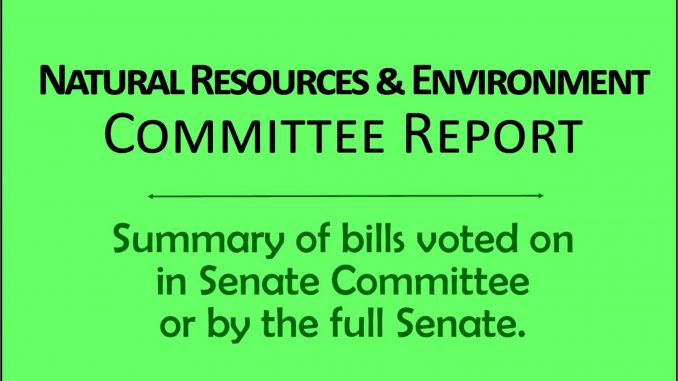
SF 511 – Maintenance requirements for septic systems using secondary filters
SF 548 – Prohibition on use of revolving loan funds to acquire land
FLOOR ACTION:
SF 511 – Maintenance requirements for septic systems using secondary filters
SF 511 would prohibit the Iowa Department of Natural Resources (DNR) from adopting rules to require a person who owns a secondary bio-filter system to have a maintenance contract. The owner of such a system would instead be required to have the system inspected every five years.
Current administrative rules require the owner of such a system to have a maintenance agreement with a manufacturer-certified technician. The service contracts can become prohibitively expensive, which has led the DNR to issue variances from the service contract requirement. Three types of systems would be exempt from the service-contract requirement: peat moss biofilters, recirculating textile filters and aerobic treatment units.
An amendment requires the systems be inspected every three years, instead of the five under the original bill.
[3/19: 47-2 (No: Celsi, R. Taylor; Vacant: Danielson)]
SF 548 – Prohibition on use of revolving loan funds to acquire land
SF 548 prohibits the use of non-point source water pollution control projects that receive funding through the state’s revolving loan fund to be used to acquire property for future donation or sale to the state, a political subdivision or the federal government. It also prohibits the state or political subdivisions from acquiring land that was purchased using assistance from the state’s revolving loan fund. Non-point source water quality projects can include:
- Restoration of wildlife habitat
- Stream bank stabilization
- Wetland flood prevention areas
- Detention basins
- Grassed waterways
- Ponds or wetland systems
- Soil quality restoration
- Other practices that are shown to improve or protect water quality
The second portion placing restrictions on projects that use state revolving loan fund assistance is meant to address concerns that these types of purchases make it more expensive or more difficult for famers to acquire farmland. Farmers wishing to buy the land get loans through a financial institution at rates higher than those offered under the state’s revolving loan fund.
The belief is that private entities use government-subsidized loans to purchase the land. Farm interests say this raises their costs of operation. However, the private entities that use the revolving loan fund generally work with willing landowners to acquire the property and put restrictions in place on the future development of the land.
This bill does not include the much more wide-ranging prohibitions on the acquisition of land by the state or its political subdivisions that was included in HF 542, which did not advance out of subcommittee in the House.
[3/20: 32-17 (Yes: Republicans and Kinney; No: Democrats and Zaun)]
